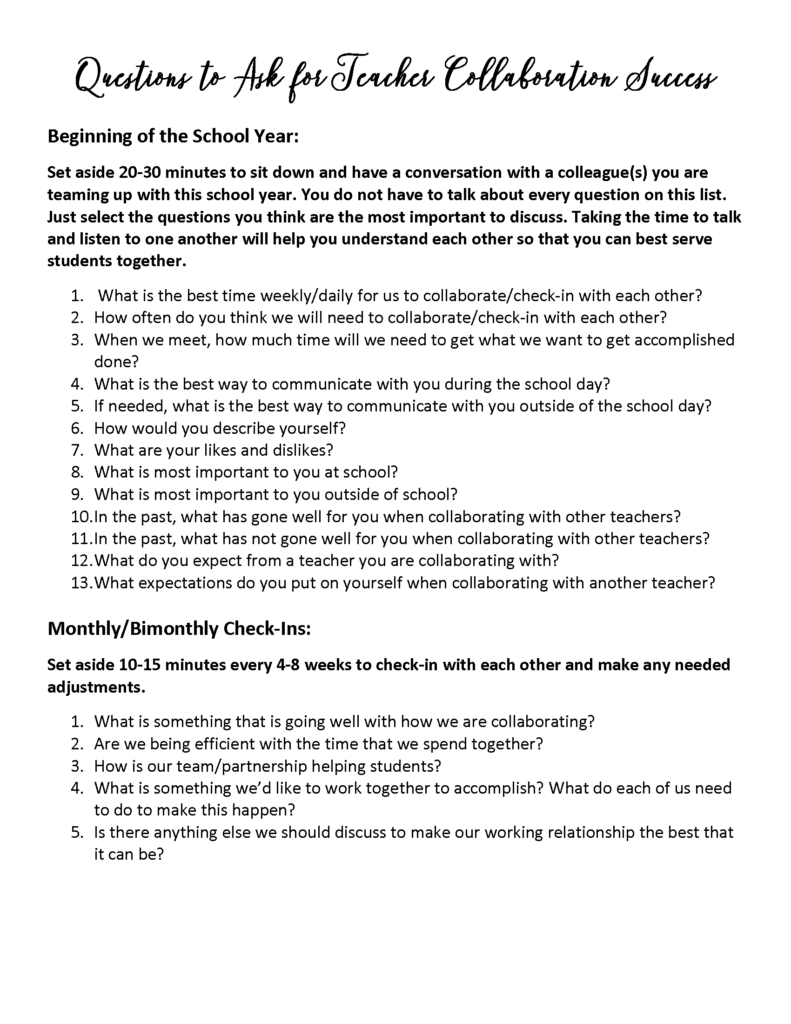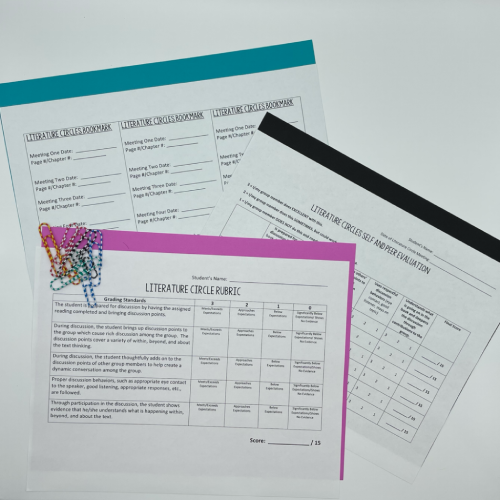Some teachers won’t admit this, and it also may not be true for all teachers, but one part of the allure to teaching for me was the independence that accompanied it. I knew that I would have a principal and work with a team of teachers, but I also knew that I would get to set up my own classroom and ultimately get to decide how I implemented the curriculum to my students. When you’re a teacher, you’re a part of a team, but you also have to be extremely independent. In a way, you are “the boss” of your own classroom.
We are at a time in education where it has become rare that your classroom is a place you are in alone with your students from bell-to-bell. Most teachers are expected to team up with other teachers and school staff members for a variety of reasons. Some of them being:
- Team teaching
- Paraprofessional support
- Classroom sharing
- ESL support
- Homeroom partners
- Special Education support/team teaching
- Grade level team members
- Content level team members
- Instructional coaching
- Teacher mentoring
These partnerships and teams are usually assigned by default, read aloud in a staff meeting, or sent out through an email. These partnerships and teams usually end up fitting into one of the categories below:
- They are a high-functioning team that work really well together.
- They become friends, but secretly are frustrated by the working relationship they share because there are parts that are just not functioning right.
- They tolerate each other but mostly avoid working as a team all together in lieu of trying to do as much as possible independently, each following their own agenda.
- One of the people on the team feels really let down by another person because they perceive the other person is not carrying their part of the work load or showing up in the way they want them to.
- They mutually dislike each other, and it’s not a secret. The working relationship can be described as dysfunctional and unproductive. It is a form of stress for all involved.
There are plenty of partnerships and teams that fall into category number 1, but there are far more that fit into categories 2, 3, 4, and 5. So what can we do? How can we try to make the adult relationships in our schools the very best they can be?
I think part of the solution has to be intentionally getting to know each other as professionals and communicating with one another before the school year and checking in during the school year. Communication about the right things can add up to make a big difference. I have created a free download with questions you can use to set your working relationship for the school year up for success. It also includes monthly check-in questions so that you’re intentionally taking time to nurture your working relationship across the school year. Taking the time to communicate will pay off exponentially. Download it here.

What can positive adult relationships do for our schools?Adults working together toward a common mission WILL positively impact students. Not just in their learning, but with their social-emotional health as well.
Adults who have positive working relationships with other adults will like their job more and have less stress associated with their job.
So before jumping in with your teaching partner and/or team this school year, take the time to have a conversation with one another and schedule a check-in time once a month to see how everything is going. You’ll be glad you did!





